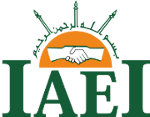How Should the Paradigm of Islamic Economic Research Be Understood?
DOI:
https://doi.org/10.47498/tasyri.v17i1.4498Keywords:
Islamic Economics, Integration-Interconnection, Positivist ParadigmAbstract
Islamic economics is still a relatively new field within academic discourse, especially when compared to other more established branches of Islamic sciences. The practice of Islamic economics in the market has spurred further investigation and research to address the emerging challenges and issues. A key problem that arises is the dominance of quantitative-positivistic approaches, which have come to be regarded as "mainstream," while alternative approaches are often considered "non-mainstream." The positivist paradigm, with its emphasis on value-neutrality, tends to distance research from the human values that define economic actors as spiritual beings. In response, the integration-interconnection paradigm seeks to position Islamic economics within a framework that incorporates the objectification of religious ethics, thus aligning economic practice with spiritual and ethical considerations.
Downloads
References
Bagir, Z. A. (2005). Integrasi ilmu dan agama: interpretasi dan aksi. Mizan Pustaka.
Dua, M. (2008). Filsafat Ekonomi: Upaya Mencari Kesejahteraan Bersama. Yogyakarta: Kanisius.
Furqani, H., & Haneef, M. A. (n.d.). Methodology of Islamic Economics: Typology of Current Practices, Evaluation and Way Forward.
Kahf, M. (1995). The Islamic Economy: Analytical of The Functioning of The Islamic Economic System, terj. Machnun Husein, “Ekonomi Islam (Telaah Analitik Terhadap Fungsi Sistem Ekonomi Islam), Yogyakarta: Pustaka Pelajar.
Kuntowijoyo, I. S. I. (2006). Epistemologi. Metodologi Dan Etika, Yogyakarta: Tiara Wacana.
Mughits, A. (2003). Epistemologi Ilmu Ekonomi Islam (Kajian atas Pemikiran M. Abdul Mannan dalam Teori dan Praktek Ekonomi Islam). Hermeneia, 2(2).
Muslih, M. (2021). Filsafat Ilmu; Kajian atas Asumsi Dasar, Paradigma, dan Kerangka Teori Ilmu Pengetahuan (Vol. 1, Issue 1). Lesfi.
Naqvi, S. N. H., & Anam, M. S. (2003). Menggagas Ilmu Ekonomi Islam. Pustaka Pelajar.
Noeng, M. (2000). Metodologi Penulisan Kualitatif. Yogyakarta: Rake Suarsiah.
Rafikov, I., & Akhmetova, E. (2020). Methodology of integrated knowledge in Islamic economics and finance: collective ijtihād. ISRA International Journal of Islamic Finance, 12(1), 115–129. https://doi.org/10.1108/IJIF-02-2019-0034
Suharto, U. (2004). Paradigma Ekonomi Konvensional dalam Sosialisasi Ekonomi Islam. Dalam ISEFID Review, 3(3).
Suriasumantri, J. S. (1993). Filsafat ilmu: Sebuah pengantar populer.
Syafiq, H., & Syarifah, L. (2023). Islamic Economics Seen from the Philosophy of Science and Integration-Interconnection Paradigm. Global Review of Islamic Economics and Business, 10. https://doi.org/10.14421/grieb.2022.101-07
Yustika, A. E. (2010). Ekonomi Kelembagaan: Definisi, Teori, Strategi, Edisi 2. Malang: Penerbit Bayumedia.
Zaman, A. (2013). LOGICAL POSITIVISM AND ISLAMIC ECONOMICS. In International Journal of Economics, Management and Accounting (Vol. 21, Issue 2).
Downloads
Published
Issue
Section
License
- Hak publikasi atas semua materi informasi yang tercantum dalam situs jurnal ini dipegang oleh dewan redaksi/editor dengan sepengetahuan penulis. Pengelola Jurnal akan menjunjung tinggi hak moral penulis.
- Aspek legal formal terhadap akses setiap informasi dan artikel yang tercantum dalam situs jurnal ini mengacu pada ketentuan lisensi Creative Commons Atribusi-Non Commercial-No Derivative (CC BY-NC-ND), yang berarti bahwa hanya dengan izin penulis, informasi dan artikel Jurnal AT-TASYRI' dapat didistribusikan ke pihak lain dengan tanpa merubah bentuk aslinya untuk tujuan non-komersial.
- Setiap terbitan Jurnal AT-TASYRI', baik cetak maupun elektronik, bersifat open access untuk tujuan pendidikan, penelitian, dan perpustakaan. Di luar tujuan tersebut, penerbit atau pengelola jurnal tidak bertanggung jawab atas terjadinya pelanggaran hak cipta yang dilakukan oleh pembaca atau pengakses.





